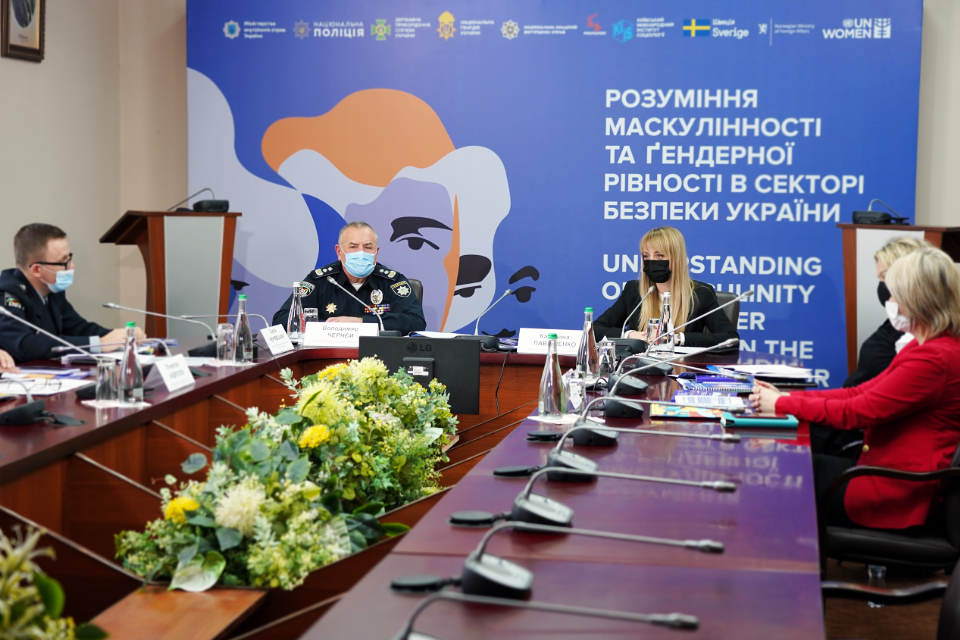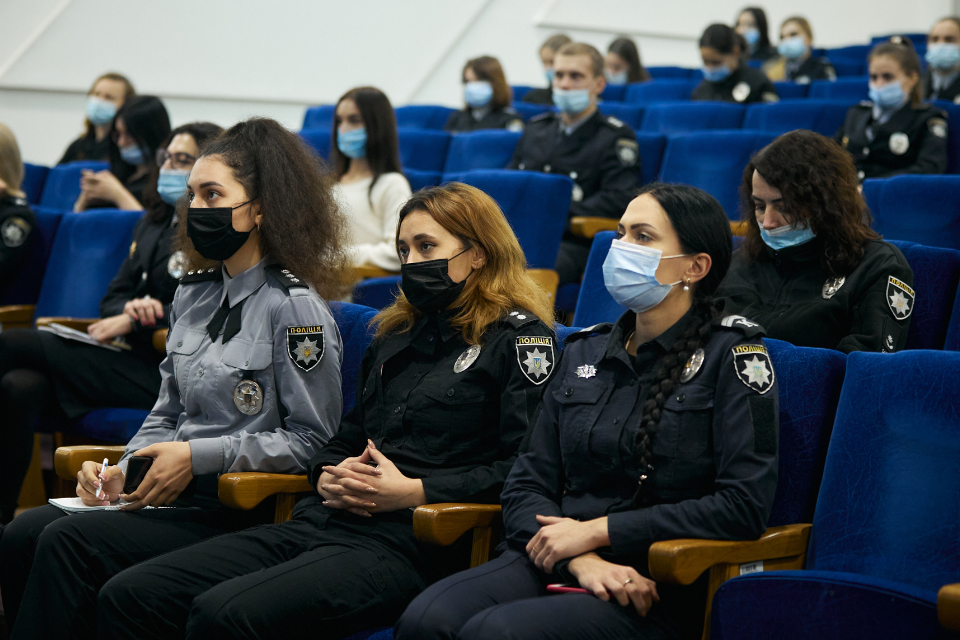Research on masculinity in Ukraine’s security sector sheds light on drivers of gender equality
Date:

Although security sector officers face trauma in the line of duty, these experiences play no significant role in their attitudes and behaviours related to gender equality. So, gender stereotypes derive not from the nature of work in the security sector but from general social attitudes, childhood experiences, and other factors. This is one of the key findings of a national study entitled Understanding of Masculinity and Gender Equality in the Security Sector of Ukraine, commissioned by UN Women Ukraine and the non-governmental organization Promundo-US at the initiative of the Ministry of Internal Affairs (MIA) of Ukraine.
The research analyses the attitudes of study participants related to gender norms and stereotypes as well as certain behavioural patterns among a sample of 1,595 participants (15 per cent women). The participants were equally divided among the MIA’s three services – the National Police, the National Guard, and the State Border Guard Service, including those currently in active service, those who had returned from active combat, and those with no combat experience.
The research explored the socialization of respondents from early childhood onwards, covering many topics such as health, partner relationships, parenting, attitudes towards gender roles, balancing professional and domestic responsibilities, violence, and more.
The study found that the majority of respondents generally support gender equality in the security sector but demonstrate rigid gender stereotypes. For example, 48 per cent of men and 23 per cent of women shared the opinion that it is best for everyone if a man earns money and a woman takes care of the family. The thought that a man should have the final word about decisions in the home is supported by over half of men (56 per cent) and 26 per cent of women.
“When you have about half of men and one quarter of women holding on to strict definitions of gender roles, it’s hard for widespread social change and gender equality to advance,” said Brian Heilman, Senior Research Officer at Promundo-US and co-designer of the study, “but at the same time it was encouraging to see strong levels of support for equality of opportunity in the security sector.”
Historically, the security sector in most of the world has been male-dominated and gender stereotypes have forced women out of formal safety and security processes. The main goal of this research is to help inform the development of policies that promote gender equality in the agencies of the MIA of Ukraine.
“Resulting from the hard work of each and every individual involved in organizing and conducting this research, we are happy to release this first-ever report on gender-related views of military and police personnel in Ukraine,” said Kateryna Pavlichenko, Deputy Minister of Internal Affairs of Ukraine. “The findings in this report will become a road map for further reform of the Ministry of Internal Affairs, based on a human rights and gender mainstreaming approach.”

To disseminate the key findings of the study, UN Women Ukraine in partnership with the MIA and National Academy of Internal Affairs organized a series of events in December 2020 in 17 academic institutions within the MIA system. Some 1,000 women and men – future military and law enforcement officers – discussed the contributions that women and men make to the security of Ukrainian society and the different expectations of women and men as to their respective roles in domestic work, career development, the upbringing of children, etc.
“If a woman made a conscious choice to work in the security sector, why should anyone doubt if she’s capable to do her job?” said a woman cadet of the National Academy of Internal Affairs.
“Both women and men can be good at protecting our country,” added her male colleague.
The research was conducted from February 2019 to December 2020 and included the participation of the National Academy of Internal Affairs, in partnership with the Kyiv International Institute of Sociology.
The national study was commissioned under the UN Women Ukraine projects “Gender Equality at the Centre of the Reforms, Peace and Security” and “Building Democratic, Peaceful and Gender Equal Society in Ukraine,” funded by the Government of Sweden and the Government of Norway.